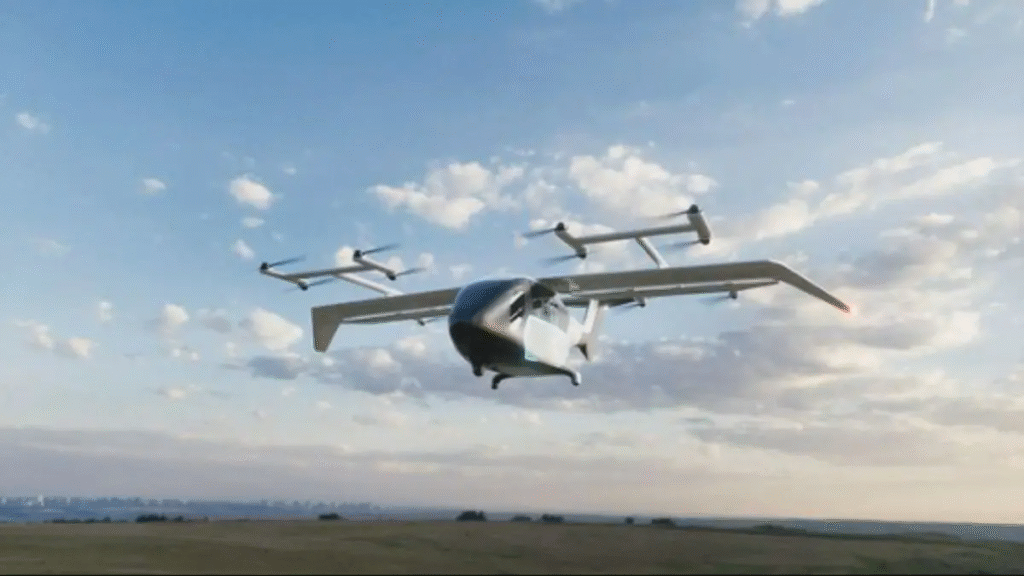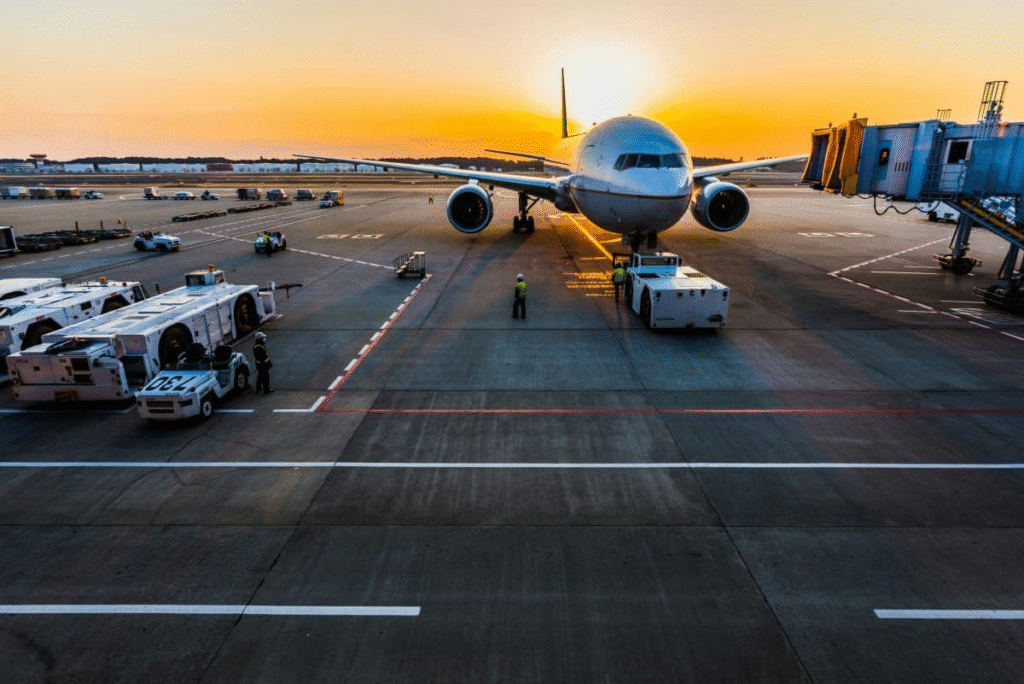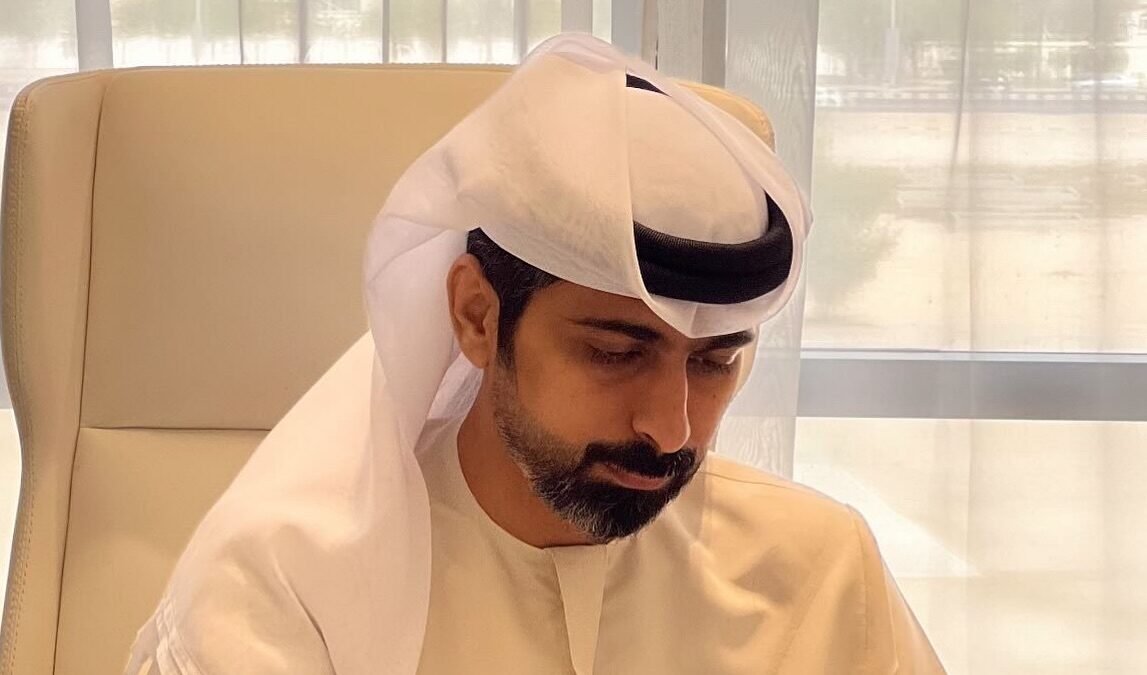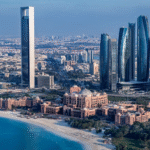Now Reading: Inside Dubai’s Bold Plans to Transform Air Travel by 2030
-
01
Inside Dubai’s Bold Plans to Transform Air Travel by 2030
Inside Dubai’s Bold Plans to Transform Air Travel by 2030

Dubai has long been a world leader in aviation, thanks to its strategic location, futuristic infrastructure, and ambitious vision. As the world looks ahead to a future shaped by new technology, Dubai is once again setting the standard for global aviation. From flying taxis to green airports, the emirate’s plans are nothing short of revolutionary.
In this report, we will explore Dubai’s future in aviation, its investment in innovation, and what travelers can expect in the next decade.
A World-Class Hub Gears Up for the Future

Dubai International Airport (DXB) is already the world’s busiest airport for international passengers, handling over 66 million travelers in 2022 alone. But Dubai is not stopping there. With Expo 2020 behind it, the emirate is focused on the next stage: making Dubai not just the world’s busiest airport, but the world’s smartest and most sustainable aviation hub.
Dubai Airports CEO Paul Griffiths has spoken of a “future-ready” plan that will use the latest technologies like artificial intelligence (AI), biometrics, and robotics to improve passenger flow and safety. These upgrades will make travel smoother and faster than ever before.
The Rise of Green Aviation in Dubai
As the world tries to fight climate change, Dubai is investing heavily in sustainable aviation. The Dubai Civil Aviation Authority and Dubai Airports are working together to reduce carbon emissions and improve energy efficiency.
One major project is the expansion of Dubai World Central (Al Maktoum International Airport), which aims to be one of the world’s greenest airports. The airport is expected to run on renewable energy, support electric ground vehicles, and integrate smart water and waste management systems.
The UAE’s national airline, Emirates, is also joining this green revolution. Emirates has committed to using more sustainable aviation fuel and modern, fuel-efficient aircraft to reduce its carbon footprint.
These efforts could make Dubai a role model for environmentally responsible air travel, attracting eco-conscious travelers worldwide.
Flying Taxis: The Future Takes Off
Perhaps the most exciting part of Dubai’s aviation future is the plan to introduce air taxis. The Dubai Roads and Transport Authority (RTA) has already carried out successful test flights of autonomous flying taxis in partnership with companies like Joby Aviation and Volocopter.
These flying taxis could be in service as soon as 2026, connecting Dubai International Airport to popular tourist destinations like Downtown Dubai, Palm Jumeirah, or Dubai Marina.
Imagine avoiding road traffic and reaching your hotel by air in just a few minutes — that is what Dubai wants to make a reality.
AI and Robotics to Redefine the Passenger Experience

Dubai is investing heavily in artificial intelligence to boost its aviation industry. AI will help airports predict passenger movements, manage baggage systems more efficiently, and even handle security checks with minimal human contact.
Robots are already in use for cleaning and information services at Dubai International Airport, but the next phase will be even more impressive. Experts believe AI will help airports in Dubai run with near-perfect efficiency, even during peak holiday seasons.
Biometric screening — scanning passengers’ faces instead of their passports — is another feature being rolled out. This will reduce queues and make travel safer and faster.
Economic Growth and Job Creation
Dubai’s aviation sector is a major engine of economic growth. The aviation industry currently supports over 27% of Dubai’s GDP and provides hundreds of thousands of jobs.
As the emirate continues to invest in advanced aviation projects, even more jobs will be created in engineering, technology, airport services, tourism, and hospitality. Experts estimate that by 2030, Dubai’s aviation sector could support nearly 1.5 million jobs across the UAE.
This growth will not only help Dubai recover from the effects of COVID-19 but also make its economy stronger and more diverse.
Challenges Ahead

Of course, Dubai’s ambitious aviation dreams do face challenges. Global competition is fierce, with cities like Singapore, Doha, and Istanbul also investing in cutting-edge aviation hubs.
There is also the question of regulation. Flying taxis, for example, will need strict safety standards and air traffic rules to avoid accidents in Dubai’s busy skies.
And while sustainable aviation fuel is promising, supplies remain limited and expensive. The industry will need global cooperation to scale up production.
However, Dubai has repeatedly shown that it can overcome challenges with a bold vision and strong leadership.
Conclusion: A New Era of Flight
Dubai’s plans for the future of aviation are ambitious, exciting, and potentially world-changing. With new technology, greener airports, and even flying taxis, Dubai is determined to lead global aviation into a smarter, faster, and cleaner future.
For travelers, this means shorter waiting times, easier journeys, and more sustainable options. For Dubai, it means staying on top of the aviation world and inspiring other cities to aim higher.
Whether you are a frequent flyer, a tech lover, or just curious about what the future holds, keep your eyes on Dubai. The sky there is truly the limit.
Read More:- Deyaar’s Latest Announcement Shakes Up the UAE Property Market





















